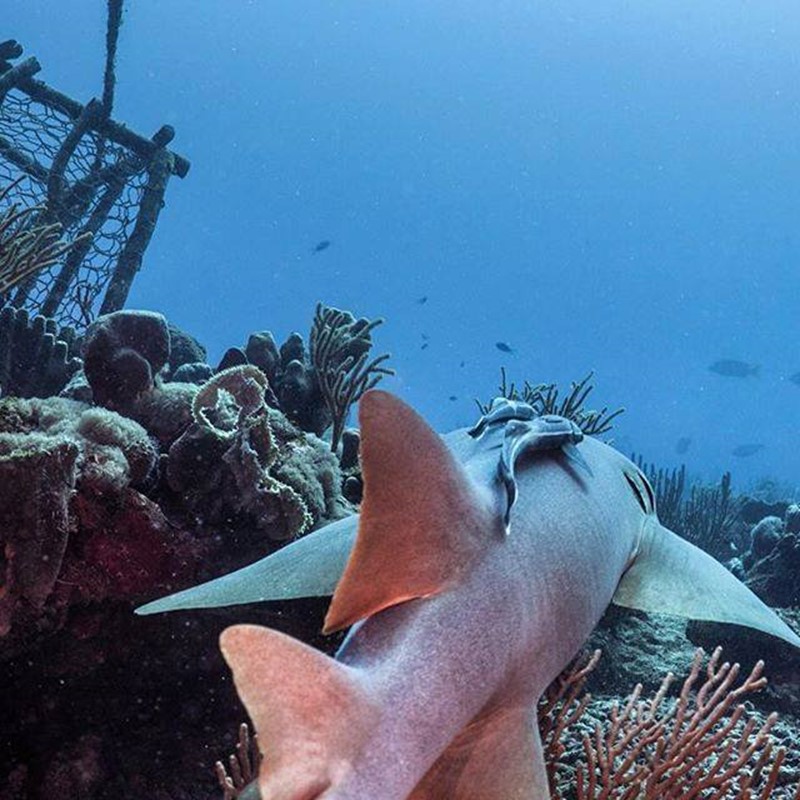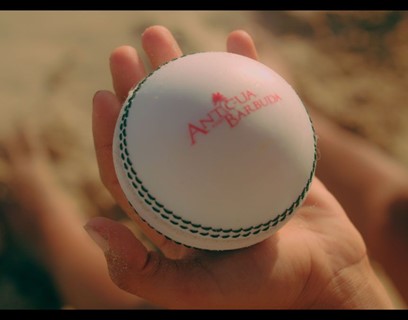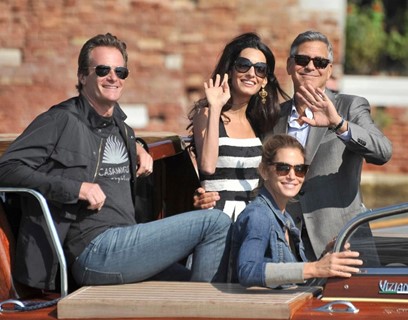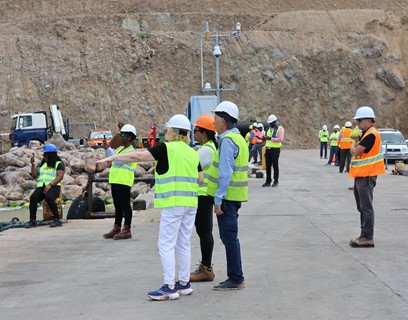
Veta Wade, Founder of Fish ‘N Fins Inc. is today calling for public financial support for a ground-breaking research project that will use underwater camera technology to record Montserrat's giant marine wildlife, such as sharks, rays, dolphins, pelagic fish, and turtles. Project Montserrat Marine Megafauna ( MMMF), the first ocean research in Montserrat to be led by a local woman, seeks to record which species are using local seas to understand better the conservation actions they need.
Veta's crowd-funding project "Harnessing New Technologies for Mapping Montserrat’s Marine Megafauna" has already raised almost half the $14,000 target needed to fund the project. In the season of giving and generosity, she is calling for those with a passion and concern for our oceans to support the project - within the next 11 days before the fundraiser closes.
Veta is currently studying for a Master's Degree at the University of Exeter through a Darwin Fellowship secured in partnership with the Marine Conservation Society. The research project will contribute to her thesis and lead to locally led ocean wildlife monitoring and conservation research led by Veta when she returns to Montserrat.
Veta says, "I am really excited about this project - I have been swimming and diving in Montserrat's seas over the last ten years and have seen some amazing marine wildlife - sharks, rays, turtles - but very little is known about what lives in our waters. In that time, I have been connecting Montserrat people to the ocean by teaching them to swim and telling them about the amazing wildlife I see through my charity Fish ‘N Fins Inc. Through this Fellowship research, I want to scientifically record what lives in Montserrat's waters and lead the way to better understanding of how we must protect it. What I hope to demonstrate to the youth and young adults in Montserrat is that we can do ocean science - we don't have to be dependent on overseas partnerships - the future of Montserrat's seas is in our hands"
Researchers are increasingly utilizing crowdfunding via the Let’s Experiment platform to support their research. Experiment is particularly useful for funding projects that seek to test new tools or techniques that collect preliminary data to understand better and/or improve the health of our oceans. Before project MMMF, collecting habitat and species data beyond the 100 m depth contour was too expensive, time-consuming, and required specialized equipment. MMMF is now proposing to use a combination of exciting new technologies to do the job, i.e. Maka Niu, a deep-sea underwater sensor and camera system by Ocean Discovery League, mid-water stereo Baited Remote Underwater Systems (BRUVs) from Blue Abacus, and environmental DNA (eDNA) metabarcoding;
Dr. Peter Richardson of the Marine Conservation Society says "We are delighted to be working alongside Veta, who has shown a passionate commitment to the people of Montserrat and their amazing marine wildlife. Through the Darwin Fellowship, Veta is building her skills as an ocean scientist, and we know she will take these skills back to Montserrat and support her country's management of its ocean resources. As a first step it is vital that she gets the support she needs for this project"
Dr. Nicola Weber, University of Exeter says, "the Centre for Ecology and Conservation at the University of Exeter’s Cornwall Campus is pleased to be able to support this exciting and timely project. Knowledge of the diversity, distribution, and exploitation of marine megafauna in Montserrat’s waters remains limited and this project will help to fill these gaps and engage the community. Veta has the knowledge and passion to drive this work forward if she can get over this first hurdle to initiate the project.”
“I am committed to making this project happen, to finding out more about our precious marine wildlife, and creating hope through new career opportunities for Montserrat's young people - in this season of giving, I ask those who love the ocean to support this exciting and ambitious project,” says, project leader,” Veta Wade.
You can support this research here.


